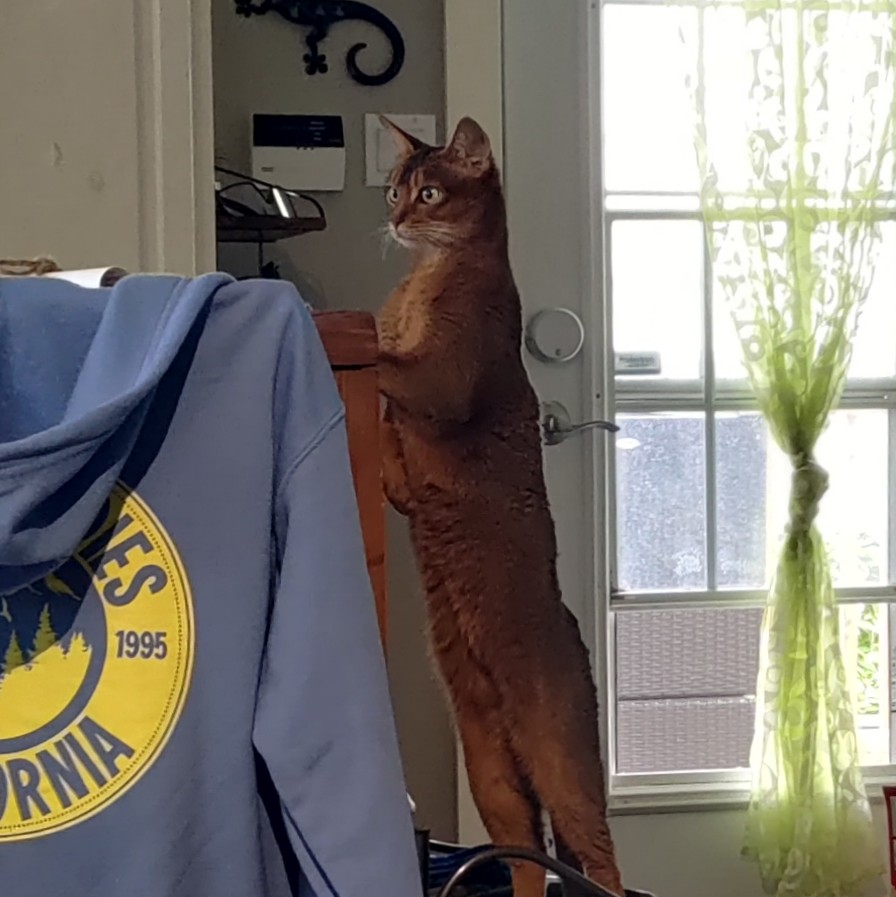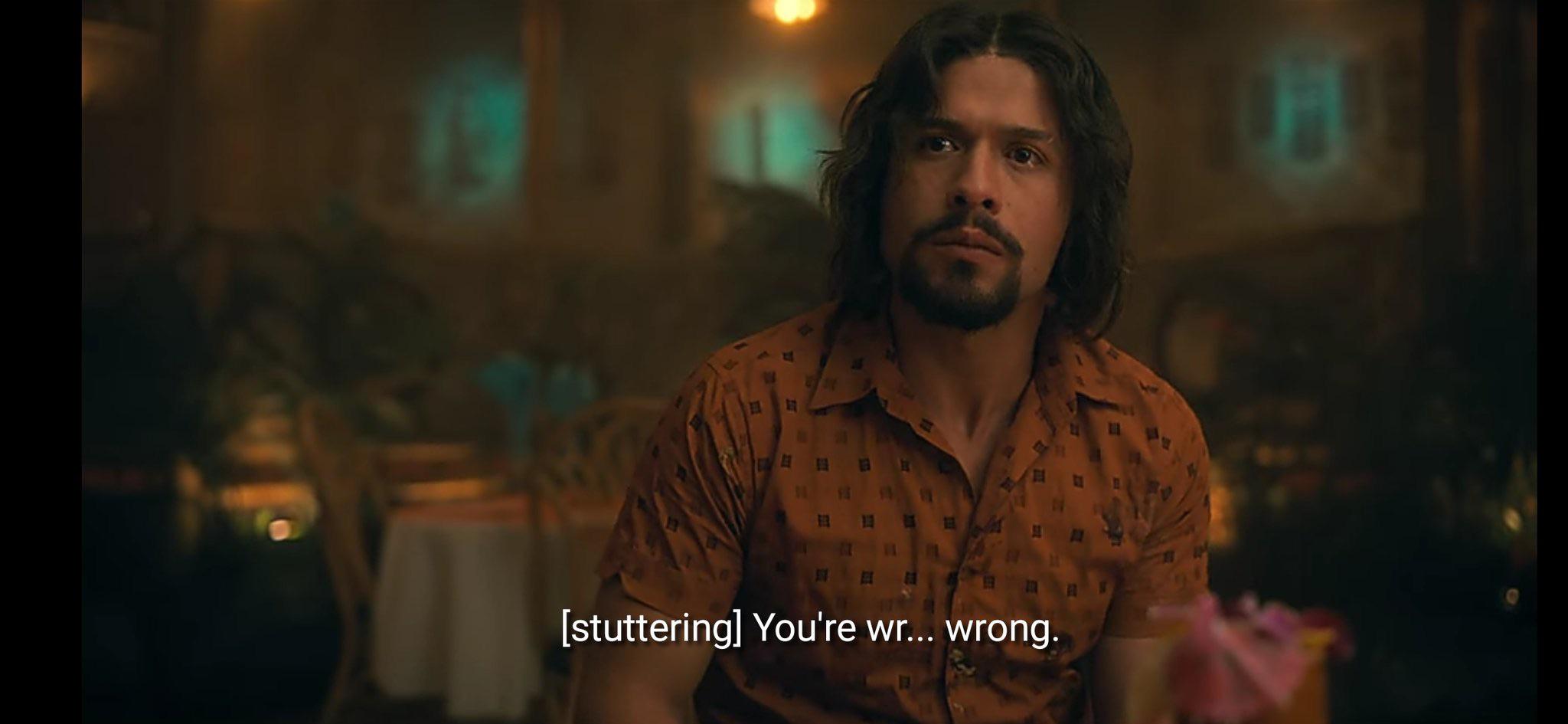deleted by creator
It was all the buzz in those days!
Honey, stick around; I’ve got more where those came from.
Buzz off, we don’t need you droning on.
Maybe it’s something more like “I dislike this situation”? Because I’d honestly be freaking out if my dick was covered in flowers and I was surrounded by bees. That’s how you get bees on your dick which seems objectively bad. I would give a fuck.
I interpret it as “I don’t give a fuck about it, and I’m so calm about it that I can literally have flowers on my dick and bees around it and I’ll be safe, I’m a Buddha of fucking calmness about this situation, I’m one with nature and the planet”.
You know, bees attack you only if you do some violent movements. I’m overthinking it, but I agree from the bunch it’s the one that stands out. So poetic.
But bees are typically not aggressive unless you frighten them. It might even tickle a little.
Not as obviously cool as the above, but I always liked the way Tagalog (Philippines) works: wala akong pakialam. Literally translated, it’s just “I don’t care,” but there’s a layer of passive-aggressiveness that can make it really offensive.
Hopefully interesting grammar lesson
In the Philippines, politeness is a really big deal, so big they have multiple layers to it:
- add “ho” - use for someone around your age to make the sentence polite
- add “po” - use for someone of higher status or age to make the sentence polite
- use plural form of you - makes anything more polite, and must be used w/ “po” with the elderly or people deserving/expecting respect
There are also pretty strict, unspoken rules about what is appropriate and what’s not appropriate to say in public.
Tagalog also uses prefixes to verbs for conjugation with separate prefixes for different uses of the same verb (e.g. physical action vs “internal” action, group action, habitual action, etc). The prefix here is “paki” (turns things into a request), and the verb is “alam” (to know). Literally translated, it means something like “please inform me,” though you could use other ways to communicate the same thing. My point here though is that “paki-” makes the request super polite.
To break it down: “wala” (Nothing, don’t have) “ako(ng)” (I, me), “paki-” (polite request), “-alam” (to know).
Basically, that construction throws out the entire culture of politeness while blatantly saying you don’t want anything to do with knowing about whatever that is. In many contexts, it’s more offensive than swearing at the person.
I love this. The closest I’ve come in English is replying to a huge angry text rant with “Unsubscribe”
I feel like you can get somewhat close with some english speaking cultures, youd be surprised how pissy folks from the South get when you respond to their passive aggressive BS with curt but utterly impolite responses.
Bless your heart, darling.
I will skin you alive and make your family watch.
Sounds like like saying “didn’t ask”
More fitting would be German “das geht mir am Arsch vorbei” “it passes me by the ass”.
If you say so.
Mir ist das Wurst
The Dutch have this too.
Het zal me worst wezen
Google Translate puts that as “I don’t care” but I’m guessing that’s not the literal translation
It’s sausage to me
Fine. Be that way. He was only asking for the literal translation. I care a cucumber.
do you know what Dutch phrase the tweet is referring to because I never heard that
“het kan me de reet roesten”
I’ve definitely never heard of that, but I live in Belgium so that’s probably why…
“It will be a sausage to me”
Wayne…
Es ist eine ältere Referenz, aber sie prüft aus
More from German:
“Das ist mir X” = “It is X to me,”
where X = banane, brot, bumbel, bums, egal, gleich, latte, pisse, relativ, schnuppe, schnurz, schwanz
(banana, bread, booger, fuck, equal, same, boner/slat, piss, relative, meteor/snuff, ?, tail/dick)Juckt?
I’d say french je m’en bat les couilles is technically “I slap my balls with it”
Oh, so I’m just supposed to slap my balls with something large like a tank? Come on!
A big thing that would hurt to slap your balls with isn’t something to ignore.
How about the Brazilian “I am shitting and walking” (cagando e andando), similar to a horse or donkey that shits while walking and pulling a cart, like it is nothing, without a care in the world…
Or, more commonly, “Tô nem aí” which would translate to “I’m not even there”.
Pode ficar com seu mundinho.
Eu não tô nem aí(☞゚ヮ゚)☞
Too polite… has to be on the same level as the OP’s expression.
If I were a donkey and that happened to me I’d be mad. Nothing worse than a morning where you don’t have time to take a shit in peace
similar to a horse or donkey that shits while walking and pulling a cart, like it is nothing, without a care in the world
I appreciate the imagery.
When I talk about preserving Linguistic Diversity, this is what I mean.
I mean a kilogram of shit is a big shit. Googling says an average shit is half a kilogram (one pound). This is interesting shit.
So a kilogram is two shits. “I don’t give two shits”.
You came here from r/theydidthemath, didn’t you?
The beauty and elegance of the metric shitstem is truly something to behold.
I agree with you a shit-ton.
You mean you agree two thousand shits?
Less vulgar finnish version
“Kiviäkin kiinnostaa.”
i.e. rocks are also interested (about that subject)
And that’s a way more common way to say it IMHO.
“Zero fucks given” is both vulgar and not the most common way to say you don’t care about something in English. So the best equivalents should all be vulgar as well.
I get it, just pointing out that the vulgar version is not a very common way to express it in Finnish.
Makes sense. I don’t think I’ve ever heard a person say “zero fucks given” in real life, but I see it constantly online.
That was my first question: are people going around saying this?
I’m Dutch. Never heard of that phrase. They probably mean “It can rust on my ass” “‘t kan me aan mijn reet roesten” still never heard people using that. Is probably regional.
Flemish: kan mij geen reet schelen
I use it sometimes. We also use an equivalent of the German one: het zou mij worst wezen.
It’s even in the lardass van dale: https://www.vandale.nl/gratis-woordenboek/nederlands/betekenis/reet
lardass van dale?
The fat hooligan.
The most well known Dutch dictionary is made by Van Dale, and it’s a big book so we call it the Dikke Van Dale, which translates to Thick/Fat/Lard-Ass Van Dale.
yeah I looked it up and saw “thick van dale” as a nickname, but I thought it might be a weird translation. makes sense there would be more names.
deleted by creator
- I slap my balls on it (French)
If that one sounds weird, the translation misses the point that it’s a masturbation reference. It should be “i beat my balls to it”. Compare with “je m’en branle”, litterally “i jack to it”
I think it was a translation of « je m’en bats les couilles »
(Which would translate more to “I slap my balls OF it”)
Ball grammar today… who would’ve thunk 😅
I’m also confused by the translation of the French idiom.
But then I’m also confused by the idiom itself: I think initially it’s “j’m’en branle”, “I’m wanking off of it”.
Then the hit my balls part should be similar to “beat your meat”.
Hence my proposed translation: I’m beating my balls off of it.
And yes it’s quite rude language in French too, that I’m sure!
But… There’s more !
Like many foul language in French, it can be decorated and escalated, even if it deteriorates the meaning. For the same idiom, some variations specify what you’re using to beat your balls: With a tart server: j’m’en bats les couilles avec une pelle à tarte With a french window: j’m’en bats les couilles avec une porte fenêtre
If you’re the proud owner of a vagina you would instead say: “j’m’en bats les steaks”. Steak is the same English word but here it refers to your labia. Then I guess the same variations as above can be applied.
It’s a much vulgar version of the much older “je m’en tamponne le coquillard”, the literal translation being “I’m patting my privates with it” meaning “I don’t care.”
There’s a famous song “Les nuits d’une demoiselle” by Colette Renard with lyrics in periphrases all describing sexual self-satisfaction using French language twists and vocabulary. A real gem!
I want this is in rural Quebequois or Acadian dialect with reference to either poutine, nun’s farts, or poutine râpée. For reasons.
That makes no sense to me. If you’re masturbating to something it means you care about it quite a bit!
You’re not jacking off to it, it’s more that masturbating is more important to you than whatever it is
Ah, that makes more sense. Although considering how much people seem to like masturbating, it’s not a huge insult to say you’d rather do that than something else.
I always understood it to mean “i slap my balls with it”, meaning that whatever were talking about is used to self inflict testicular pain, which is not something enjoyable
That “Spanish” saying is a Spain saying. Things get more colorful in the new world.
Came here to say this. Not only is it european spanish but it’s also a bit dated. Nowadays they would say “this makes mine sweat” (mine is a noun here, as in my thing) and where i’m from we say “this is worth dick to me” (which i hope will also be outdated sometime soon)
Thanks for your comment. It’s worth a sweaty cucumber to me.
Ok, me la suda I recognize, what’s the second one and where are you from?
“me vale verga” and i just meant to say in latin america because this phrase is common all over
nadie en el sur del continente dice eso
Well, it is the most Spanish version of the language there is.
you also agree that England has de most English version of the language too?
of course
Also in French: “it touches one (ball) without moving the other”
As famously said by a former president of the country.
“My dick hurts” - various west Balkan languages.
This is why I’m still on the Internet.
Same.
I slap my balls with it will be my catchphrase for 2025
French dudes running around tea-bagging everything they hate
Sounds like a regular afternoon in Paris
It is “I slap my balls ON it”, you frenchist
ah The State, well played
























